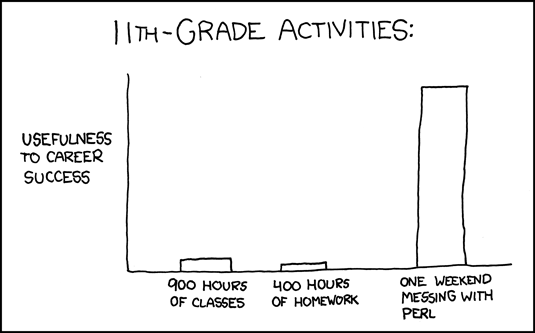Welfare states increase social mobility and break deadlocked class structures. That's what we often hear. But is it true?
If this view is correct, then countries with a high degree of redistribution activity such as Sweden should by now have reached a status with very few signs of class structuring left. A good way to measure this is the Gini coefficient. Wikipedia informs us that "The Gini coefficient is a measure of statistical dispersion most prominently used as a measure of inequality of income distribution or inequality of wealth distribution." Wealth distribution is much more interesting than income distribution because it reflects more accurately the dispersion of economic power. To illustrate that, you can have an allegedly socialist paradise with everyone earning exactly the same wage, but a very tiny minority of oligopolists owning all the means of production. Is everyone equal in this society? Of course not. Gini-income wouldn't show that, Gini-wealth does.
It so happens that while Gini-income for Sweden is conspicuously low (meaning that wage differences are not that prominent), Gini-wealth lists Sweden in the top bracket, even surpassing countries like Brazil or Mexico (sorry that my sources on this stuff are in German, I couldn't find any accurate English ones, but you should be able to understand the important bits). Why could that be? We have to understand the incentive structure behind the welfare state. The welfare state basically tells its clients: you do not need to worry about tough times, I'll care for you. Just pay me. As a consequence, people tend to save less and spend more, hoping that all the money they already paid into the welfare state will eventually work like a savings accout, helping them in bad times. If a welfare state grows so big that any conceivable extra-expense is covered for everyone, there is little to no incentive left to save. In other words, the accumulation of capital comes to a halt for those who rely on the welfare state, that is poor and middle class individuals. Those who already own vast amounts of capital will eventually be the only wealthy ones left. Plus, since they do not have to worry about competition from poor and middle class capitalists, they can easily expand their wealth thanks to a welfare state-incentivized oligopoly of capital, making them the only incontestable economic power group.
This should also have an impact on the household savings rate of affected countries. And indeed, in the heyday of the Swedish welfare state, the 1980s, household savings rates actually turned negative, took a sharp turn upwards in the days of welfare reform in the mid 90s (when it became apparent that their model was unsustainable), but declined after that for it seemed that the welfare problem had been solved satisfactorily.
But does that matter at all? If the state provides for you, why do you need personal wealth? The thing is, somebody needs to create wealth before it can be distributed. If nobody but a select few have enough capital to start a venture, then not only your employment, but also your provision of "basic services" depends on the good will of a few capital oligopolists. That makes countries prone to blackmail - "either you allow me to pursue reckless business policies or I'll move out of country, taking one fifth of all jobs and the capital structure with me". With a more dispersed distribution of wealth, such claims are much less powerful since the macro-economic damage one can do tends to be comparatively small.
In conclusion, we might say that the welfare state, unwillingly perhaps, considerably widens the gap between "haves" and "have-nots" and increases social mobility only to the extent that you can now better compete with others for jobs offered by the remaining oligopolists - X, Y or the state. Globalization improves this situation to some extent because foreign capital investors can now compete with domestic big shots, but domestic big shots still have their "home advantages". The situation needs be cured from within, not without.
If this view is correct, then countries with a high degree of redistribution activity such as Sweden should by now have reached a status with very few signs of class structuring left. A good way to measure this is the Gini coefficient. Wikipedia informs us that "The Gini coefficient is a measure of statistical dispersion most prominently used as a measure of inequality of income distribution or inequality of wealth distribution." Wealth distribution is much more interesting than income distribution because it reflects more accurately the dispersion of economic power. To illustrate that, you can have an allegedly socialist paradise with everyone earning exactly the same wage, but a very tiny minority of oligopolists owning all the means of production. Is everyone equal in this society? Of course not. Gini-income wouldn't show that, Gini-wealth does.
It so happens that while Gini-income for Sweden is conspicuously low (meaning that wage differences are not that prominent), Gini-wealth lists Sweden in the top bracket, even surpassing countries like Brazil or Mexico (sorry that my sources on this stuff are in German, I couldn't find any accurate English ones, but you should be able to understand the important bits). Why could that be? We have to understand the incentive structure behind the welfare state. The welfare state basically tells its clients: you do not need to worry about tough times, I'll care for you. Just pay me. As a consequence, people tend to save less and spend more, hoping that all the money they already paid into the welfare state will eventually work like a savings accout, helping them in bad times. If a welfare state grows so big that any conceivable extra-expense is covered for everyone, there is little to no incentive left to save. In other words, the accumulation of capital comes to a halt for those who rely on the welfare state, that is poor and middle class individuals. Those who already own vast amounts of capital will eventually be the only wealthy ones left. Plus, since they do not have to worry about competition from poor and middle class capitalists, they can easily expand their wealth thanks to a welfare state-incentivized oligopoly of capital, making them the only incontestable economic power group.
This should also have an impact on the household savings rate of affected countries. And indeed, in the heyday of the Swedish welfare state, the 1980s, household savings rates actually turned negative, took a sharp turn upwards in the days of welfare reform in the mid 90s (when it became apparent that their model was unsustainable), but declined after that for it seemed that the welfare problem had been solved satisfactorily.
But does that matter at all? If the state provides for you, why do you need personal wealth? The thing is, somebody needs to create wealth before it can be distributed. If nobody but a select few have enough capital to start a venture, then not only your employment, but also your provision of "basic services" depends on the good will of a few capital oligopolists. That makes countries prone to blackmail - "either you allow me to pursue reckless business policies or I'll move out of country, taking one fifth of all jobs and the capital structure with me". With a more dispersed distribution of wealth, such claims are much less powerful since the macro-economic damage one can do tends to be comparatively small.
In conclusion, we might say that the welfare state, unwillingly perhaps, considerably widens the gap between "haves" and "have-nots" and increases social mobility only to the extent that you can now better compete with others for jobs offered by the remaining oligopolists - X, Y or the state. Globalization improves this situation to some extent because foreign capital investors can now compete with domestic big shots, but domestic big shots still have their "home advantages". The situation needs be cured from within, not without.















